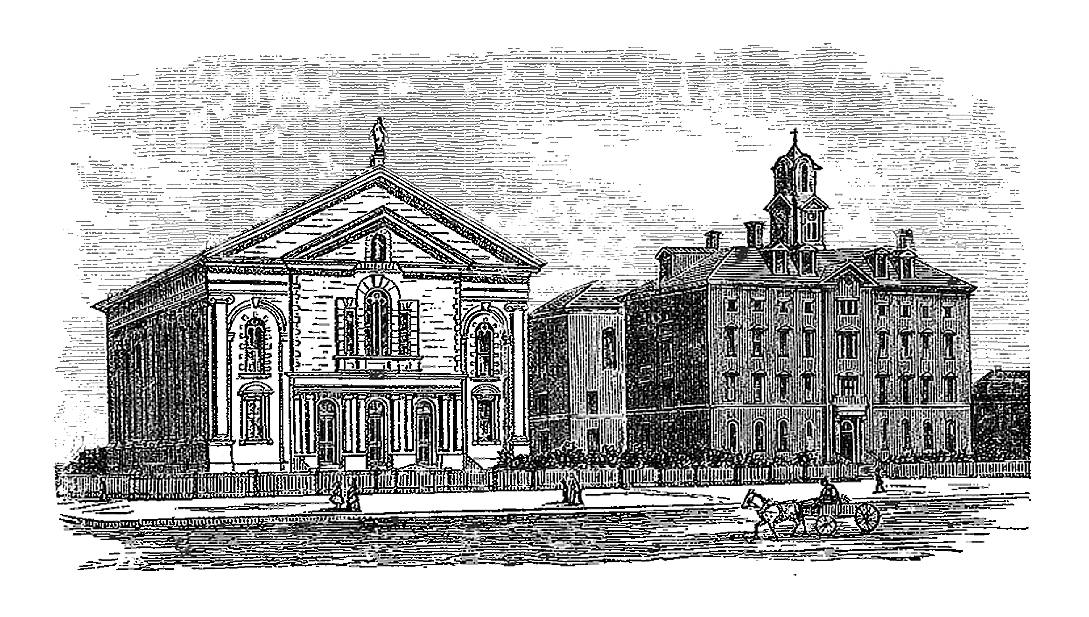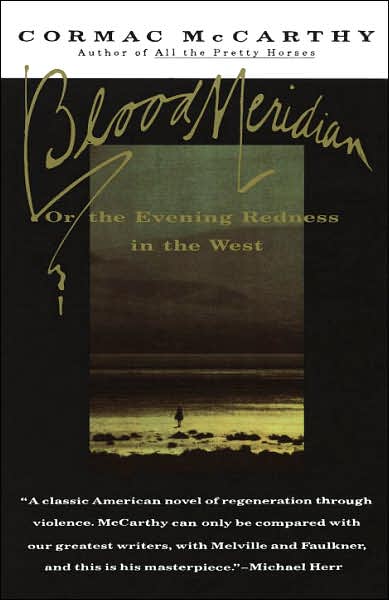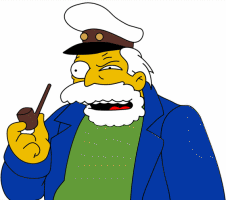The next step in my argument is to say that McCarthy's voice is present throughout the novel, and that he is implicitly referencing the allusions he was so careful to invoke throughout the novel. What I mean by that is the narrator is fully conscious of the allusive nature of the novel and uses that fact to make a claim about history and literature. While reading these passages keep in mind that they come in the context of a literary and historically allusive novel. Also, I find it's important to read McCarthy's prose slow because sometimes the sound and rhythm is so soothing that I stroll right through it without understanding what it's saying.
1. Their shadows contorted on the broken terrain like creatures seeking their own forms (65).
What interests me here is the "seeking their own forms." It reminds me of the story of Noah and Ham where Ham looks upon his naked father in search of his own form, and it is what we as humans do through the study of written history.
2. Rough likenesses thrown up at hearsay after the things themselves had faded in men's minds (75).
To me, this is McCarthy's view of written history, that it is just "Rough likenesses thrown up...after the things themselves had faded."
3. For this will to deceive that is in things luminous may manifest itself likewise in retrospect and so by sleight of some fixed part of a journey already accomplished may also post men
to fraudulent destinies (120).
This quote is important not only because it invokes American expansionism "manifest...destinies" but because it also calls to mind humanity's relationship to what has already happened, and the deceptive nature of past experiences.
4. In that sleep and in sleeps to follow the judge did visit. Who would come other? A great, shambling, mutant, silent and serene. Whatever his antecedents, he was something wholly other than their sum, nor was there system by which to divide him back into his origins for he would not go (309).
This was the quote that ruined my first thesis. Here, McCarthy's voice is present. I can here him saying "You know how I was so careful to follow historical fact and to coincide with Samuel Chamberlain's account of Judge Holden? Well, forget about that, this character is something completely different."
5. Men's memories are uncertain and the past that was differs little from the past that was not (330).
This quote is pretty self-explanatory. "The past that was not" meaning everything fictitious or imagined about the past.
So. Why is McCarthy doing this? After all that historical accuracy why throw these passages in there? I say that what McCarthy is ultimately doing is debunking written history as a way to understand the truths of something that has passed. To do this, he creates two links to the past:historical and literary. By passing off one (historical) as "Rough likenesses thrown up at hearsay" he brings the other (literary) to focus. I argue that what this all amounts to is an argument for literature, for "the past that was not." By creating a character from history (Judge Holden) but then saying he is "something wholly other than" the real guy, McCarthy puts his novel on a plane above written history. He allows his own fiction to make claims about truth and humanity just as we make these claims from history. What claim is he making? I believe he is implying that violence and blood are the foundation of our existence as Americans. We are the child. All history is present in our visage, too. "The child the father of the man": the man being us, modern humans, the child being our ancestors.
So what we have here is an argument for fiction as opposed to history, backed by McCarthy's virtuosic representation of violence by the contrast of his prose: the elegance of his language, and the horror of what it's describing.
Wednesday, June 3, 2009
Subscribe to:
Post Comments (Atom)





No comments:
Post a Comment